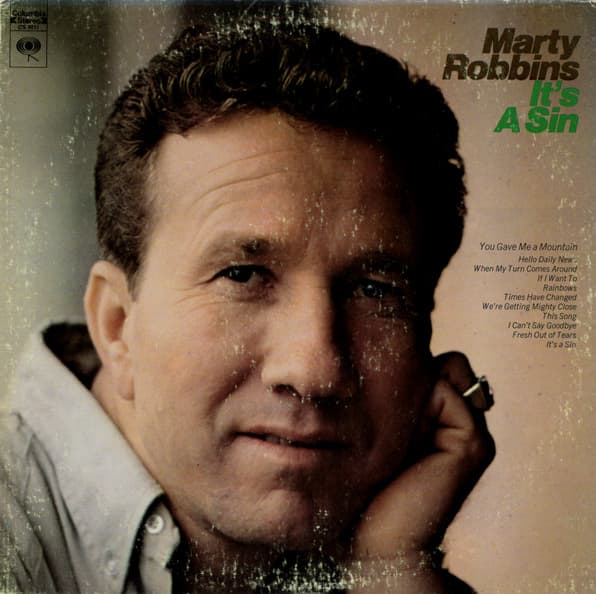
Marty Robbins – It’s a Sin: A Melancholic Reflection on Lost Love
In the tender and evocative strains of Marty Robbins’ rendition of “It’s a Sin,” released in 1969, listeners find themselves immersed in a haunting narrative of regret and longing. This classic ballad stands as a testament to the timeless nature of heartbreak, beautifully encapsulated in Robbins’ rich, emotive voice. At the time of its release, the song resonated deeply with audiences, carving its place within the country music charts and reaching listeners who found solace in its melancholic embrace.
Originally penned by Fred Rose and Zeke Clements, “It’s a Sin” had already been interpreted by several artists before Robbins lent his unique touch to it. However, his version remains one of the most poignant, capturing the essence of a soul burdened by remorse. The song’s success can be partially attributed to its universal theme—one that speaks to the human experience of losing love and the subsequent self-reproach that follows. Robbins’ delivery is nothing short of masterful; his voice carries the weight of every word, drawing listeners into the depths of his sorrowful introspection.
Marty Robbins, known for his versatility and ability to convey complex emotions through music, approached “It’s a Sin” with an authenticity that only he could muster. By 1969, Robbins was already an established figure in the world of country music, celebrated for hits like “El Paso” and “Big Iron.” His ability to tell stories through song made him a favorite among fans who appreciated narrative-driven music. With “It’s a Sin,” Robbins continued this tradition, offering not just a song but an experience that evokes powerful imagery and emotion.
The story behind “It’s a Sin” is one that many can relate to—a reflection on past mistakes and the realization of love lost due to one’s own actions. The lyrics paint a vivid picture of a person grappling with guilt and yearning for redemption. Each verse unfolds like a confession, where admission is both painful and cathartic. For older listeners, particularly those who have navigated the complexities of relationships over time, the song serves as both a reminder and a release—a chance to revisit memories tucked away in the corners of their hearts.
The late 1960s was a period marked by significant cultural shifts and musical evolution. In such times, songs like “It’s a Sin” provided a connection to familiar themes amidst change. Robbins’ rendition spoke directly to those who valued sincerity and depth in music, offering comfort through shared understanding. As the needle touched down on vinyl records or as radios crackled to life with Robbins’ voice, listeners were reminded that they were not alone in their feelings of regret or sorrow.
In essence, “It’s a Sin” is more than just a song; it is an exploration of human emotion and an acknowledgment of our imperfections. Through his heartfelt performance, Marty Robbins invites us to reflect on our own lives—on choices made and paths taken—and perhaps find peace in knowing that regret is part of what makes us profoundly human. As we listen today, the song continues to resonate, bridging generational divides with its timeless message and leaving an indelible mark on all who hear it.